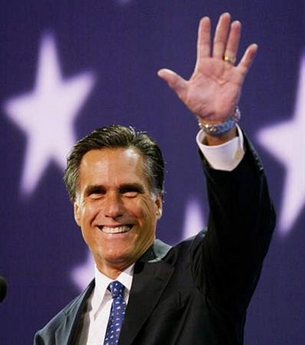 If you’ve read a newspaper lately, or listened to any of the presidential candidates talk, you’re probably aware that the U.S. economy is in a bit of trouble. To hear some tell it, we’re headed for a financial Armageddon.
If you’ve read a newspaper lately, or listened to any of the presidential candidates talk, you’re probably aware that the U.S. economy is in a bit of trouble. To hear some tell it, we’re headed for a financial Armageddon.
Being realistic, much of this is being driven by politics, as every candidate says he or she has the solution to all our problems. Our economy certainly has some issues right now, and our monetary system is an outright disaster. But if we do hit a recession (or are already in one), it should be milder than most would have you believe.
Either way, Major League Baseball will almost certainly be hit by this slowdown. In fact, we wrote about this before, suggesting that teams should factor a possible economic downturn into their 2008 budgets.
That said, I’ve discussed this with some other sports business pundits, and most are convinced that the MLB revenue train is simply unstoppable at the moment. And while I agree that revenues will continue to grow in 2008, there is almost no chance that the sport’s core businesses (ticket sales, merchandise, advertising revenue, etc.) won’t be negatively affected.
During our last recession, the sport’s growth slowed to a virtual halt, as revenues rose just 1.9% in 2002. This was by far the lowest rate in the last twenty-five years, aside from the 1994 strike year.
There certainly are some differences between then and now. The sport was headed for another labor showdown that August, and the industry has been rapidly expanding and diversifying ever since (especially online). But with consumer sentiment bottoming, and advertisers becoming equally nervous, the sport will certainly hit at least a small speed bump.
Going back to the issue we brought up in October, though, have teams been a bit more cautious? I would love to see a real scientific analysis of this, but my eyes tell me they have. Mike Cameron, David Eckstein, and other established regulars have had to settle for one year deals. And even the market for starting pitching, once thought to be ceaselessly bullish, seems to have slowed. Kyle Lohse, Livan Hernandez, and Bartolo Colon remained unsigned, despite the fact that all compare similarly (or even favorably) to Jason Marquis and others from last year’s class.
I’m not necessarily evaluating any of these players. Cameron ended up with a deal similar to that of Jason Jennings. I know which one I would rather have, but I also know which one the market has generally propped up in recent years.
There’s enough time left in this offseason to prove me wrong, but the treatment Cameron got (and Lohse is getting) is similar to that of free agents in the immediate post-A-Rod Bubble market of 2002-04, not the bull market of just two months ago.
Baseball analysts don’t spend much time thinking about macroeconomics, but we should. These are very real effects that are generally written off until they are staring us in the face. Staying ahead of the game is essential for teams, and should be for us as well.
Feedback? Write a comment, or e-mail the author at shawn(AT)squawkingbaseball.com
Add New Comment